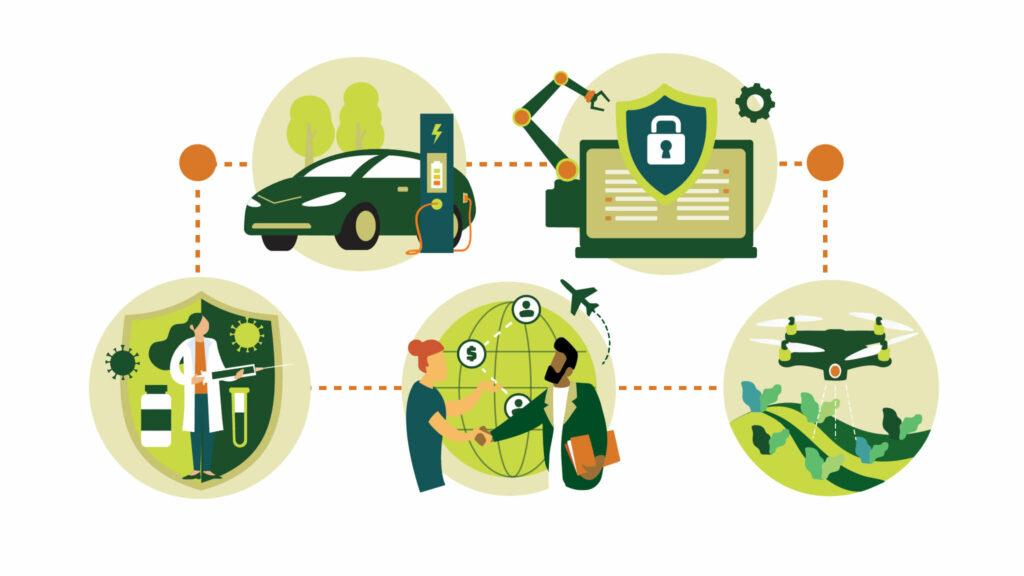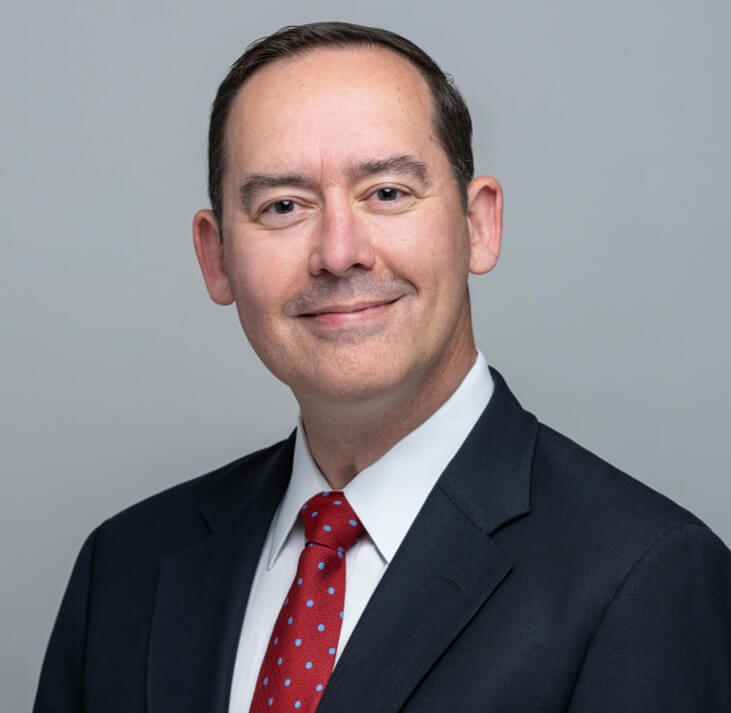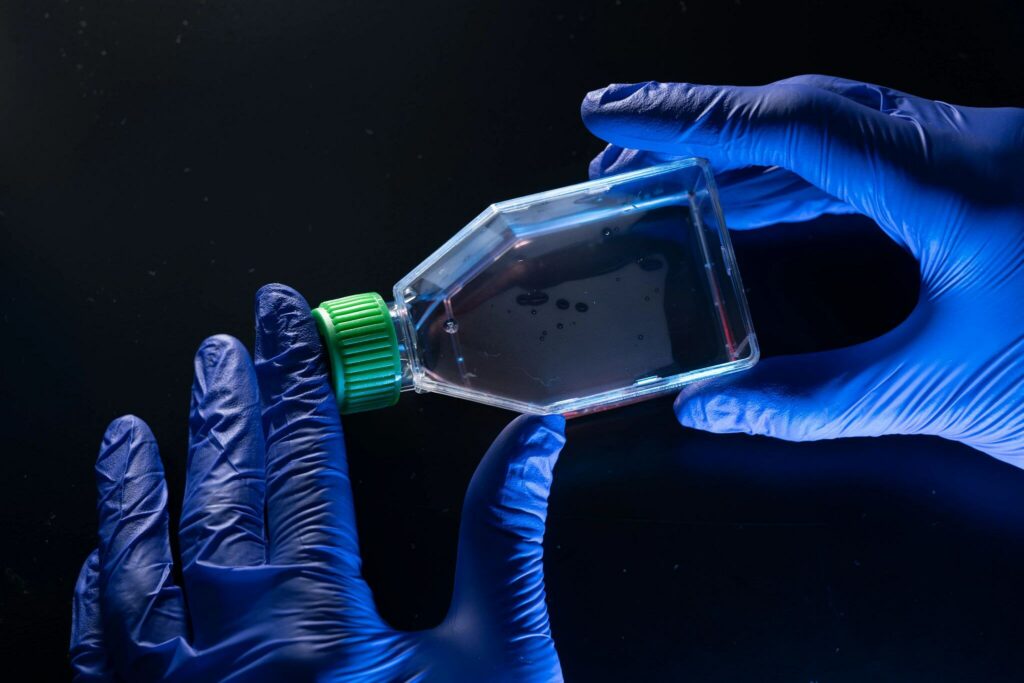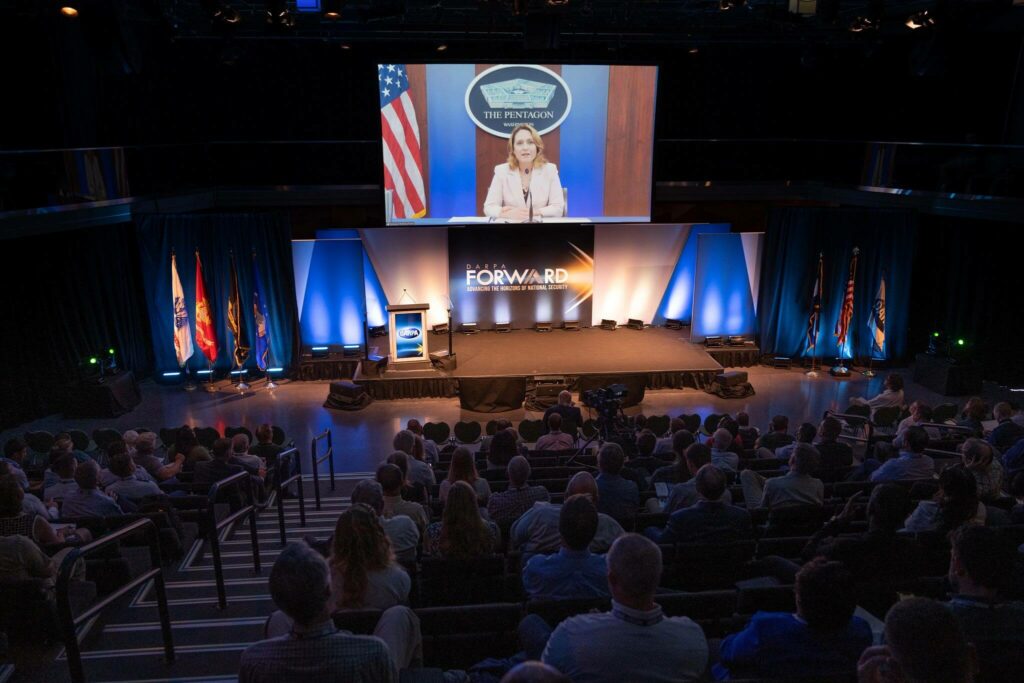The power to do good in this world is animated by people, enabled by technology, and amplified by the political systems in which we operate. The CSU land-grant ethos has long inspired our community to do good by rolling up our sleeves, solving hard problems, and creating better lives “for the benefit of the citizens of Colorado, the United States, and the world,” as the CSU mission states.
CSU has an exceptionally strong track record at creating positive impact, so it makes sense to broaden the impact to the national security sector. To that end, CSU’s newly established Office of Defense Engagement will play a critical role in identifying opportunities and establishing relationships with industry, military, and government partners.

Credit: My Linh Mac, CSU Marketing & Brand ManagementNational security threats come in many forms today. We are reminded of that by recent global and national events, including catastrophic wildfires, flooding and drought, the COVID-19 pandemic, food and energy supply disruptions, cyber theft and infrastructure attacks, disinformation campaigns, and the ongoing mental health crisis. Indeed, threats to our national security and global stability are more varied than the past three decades of U.S. military operations in the Middle East would indicate. The international backdrop for this array of challenges is the competition between the United States and the authoritarian regimes of the People’s Republic of China, America’s most consequential geopolitical challenge, and a profoundly dangerous Russia.
The daunting array of reasonably likely and consequential challenges, whether naturally occurring or human-initiated or a combination of both, drives us to emphasize resiliency in our personal lives and for society. To focus on resiliency is realistic and useful because the question is not if, but when we will face challenges. The good news is that CSU is well positioned to solve hard problems in the 21st century to increase our resiliency across the state of Colorado, the United States, and the world, thanks to our incredibly talented faculty, students, and research professionals.

Our growing awareness of the value of our impacts to national security and growth potential in this space led the Office of the Vice President for Research to hire Wiley Barnes as the first executive director of the Office of Defense Engagement. Barnes is a former Air Force intelligence officer with skills in threat assessment and creative problem-solving. He is already establishing new connections and opportunities at CSU for national security.
Areas of Focus
Pandemic Response
Our contribution to national security as it relates to biology is unique because we study pathogens in ways that no other U.S. institution can. The combination of this national asset with a leading school of veterinary medicine and national node for animal and wildlife disease surveillance amplifies our impacts into practice and in training the next-generation workforce. We have more recently extended our microbiological research excellence into communities of microbes in the world around us and the air we breathe. We have seen impacts across soil health, geological and watershed health, and human and animal nutrition and health, with significant increases in our research activities in this area. We have more recently recognized the evolution of national security issues in the data protection and preservation areas across these sectors. Cybersecurity of facilities and data stores that engage this work is a topic CSU has led in creating student opportunities to engage in bio-cybersecurity training and events.
Coming out of a historic pandemic, we realize how important infectious disease is to our national security.

Olivia Martinez, sophomore microbiology, immunology, and pathology major, works in the Kading Lab at the Center for Vector-Borne Infectious Diseases. Credit: John Eisele, CSU PhotographyBecause disease pathogens know no boundaries, they can close national borders and stifle economies. Supply chain pressures can tilt markets and international relationships. New innovations, such as genetic engineering tools (CRISPR), have implications across borders and have been identified as new sources of national security concern. CSU’s role has been to provide objective, high-quality science and advice to our research sponsors on national security issues. In the infectious disease space, this has extended from fundamental dynamics of the transmissibility of disease in animal and human populations to manufacturing a pan-vaccine countermeasure. We have also helped launch our ideas to scale in new companies on vaccine development and delivery, rapid diagnostics, wastewater surveillance, and new rapid and distributed manufacturing methods.
Drone Technology
Drones had been exclusively used by the military for decades, but have now proliferated across countless military, commercial, and recreational applications. To meet this need, CSU established the Drone Center based near historic Christman Airfield on the Foothills Campus in Fort Collins. In recognition of CSU’s leadership, the Federal Aviation Administration recently awarded the Drone Center an aerospace workforce development grant to provide drone training to disadvantaged high school students. In October 2023, CSU will host the first Colorado Drone Airshow. The Drone Center will continue to lead the way in drone pilot training, defense industry collaboration, and customized research applications for agriculture, engineering, natural resources, and more.
Cybersecurity
The Internet of Things is extending rapidly across society, including critical infrastructure sectors, creating opportunities for efficiency through data science and interconnectedness. This interconnectedness also increases opportunities for disruption by hackers. CSU has been conducting DARPA-sponsored research on “micro-patching” to increase cybersecurity and reduce operational technology risk. The CSU Cybersecurity Center was recognized by the National Security Agency in 2022 as a National Center of Academic Excellence. Our cybersecurity research and workforce development efforts will grow as we dig deeper into the cybersecurity nexus with biotechnology, energy, transportation, and connected community infrastructure.

Kathleen Hicks, deputy secretary of defense, U.S. Department of Defense, delivers a keynote address at the "DARPA Forward: Advancing the Horizons of National Security" conference at Colorado State University. Credit: John Eisele, CSU PhotographyAerospace
The global demand for aerospace expertise and innovation is skyrocketing. (Colorado is the top state for aerospace employment per capita; more than 500 companies and suppliers provide space-related products and services.) The Department of Defense has four major aerospace-related commands headquartered in Colorado, plus the largest number of U.S. Space Force units, or deltas. According to United Launch Alliance, the demand for satellites in orbit far outweighs the space launch supply, and this imbalance is expected to continue into the foreseeable future. CSU is poised to grow its aerospace partnerships with industry and government with development of our hypersonic wind tunnel, laser technology, materials, fuels, sensors, communications, biotech, data science, and talent.
Wildfire
Research suggests wildfire frequency, severity, and season duration will continue to increase as the climate changes. In 2021, Colorado’s Marshall fire destroyed more than 1,000 homes and caused more than $2 billion in financial loss in Boulder County. Due to the high density of aerospace infrastructure in Colorado, wildfire not only threatens the safety, health, and prosperity of our communities, it also poses a national security threat to critical infrastructure. CSU is uniquely positioned to respond with solutions to this threat, from prevention and detection to response and recovery, with our wide range of wildfire expertise across the University and the ecosystem of partners across government, industry, and academia.
As new technology and the natural world present opportunities and challenges, we are confident the CSU community, already at the forefront, will continue to grow our impact on national security, resilience of our society, and the good in Colorado, the United States, and the world.
Alan Rudolph serves as the vice president for research at Colorado State University. Wiley Barnes is the executive director of the Office of Defense Engagement at CSU.